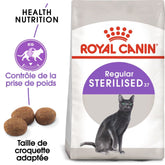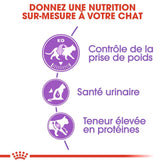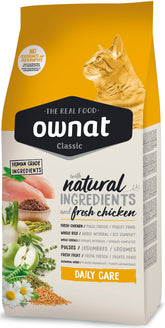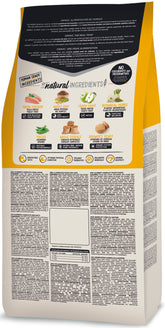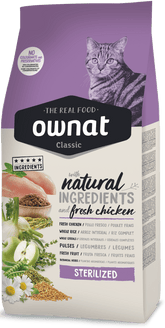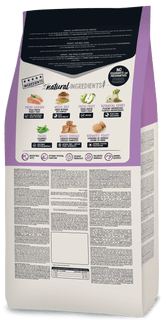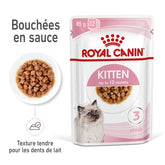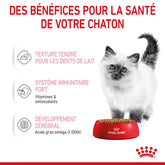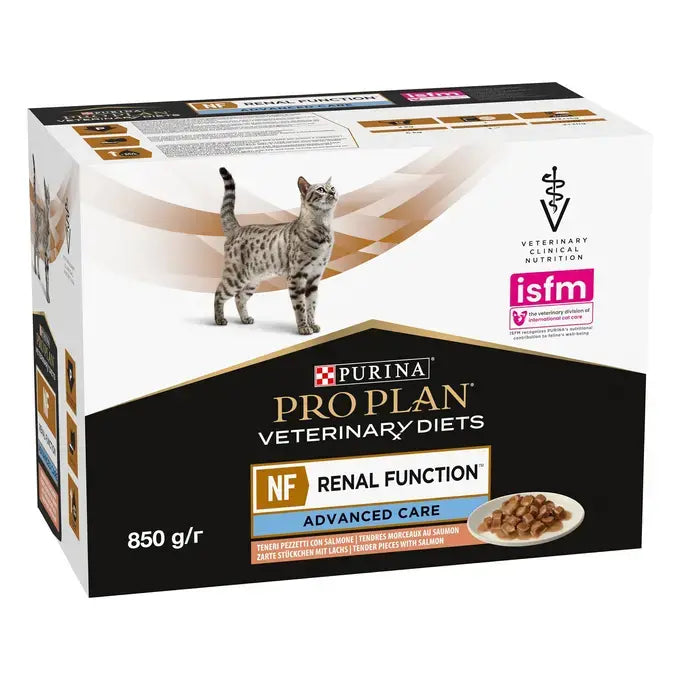
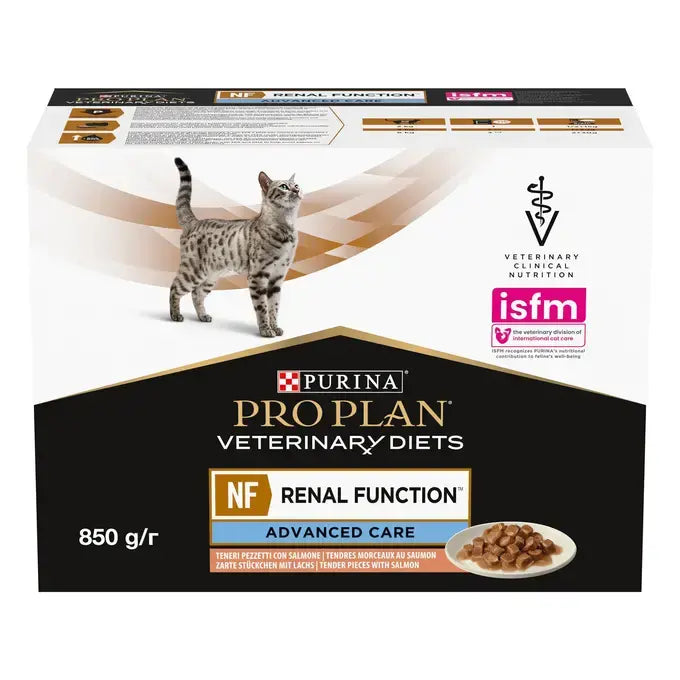
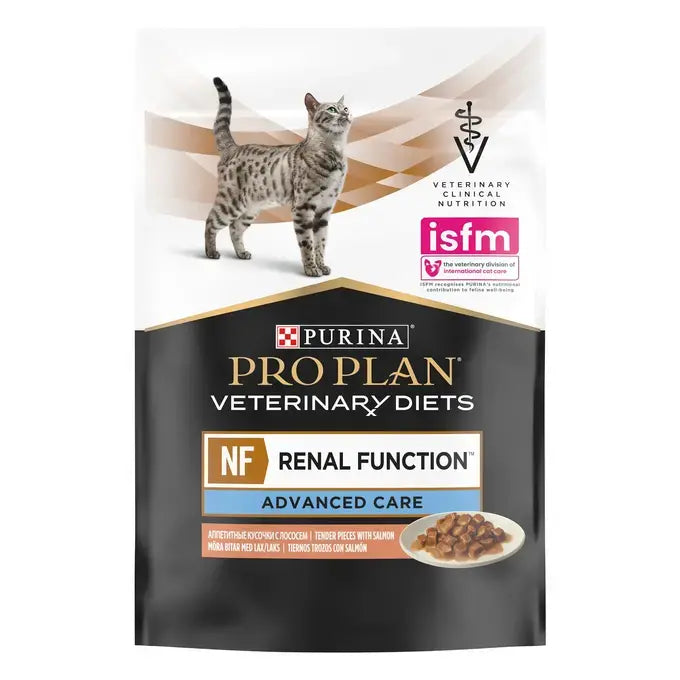
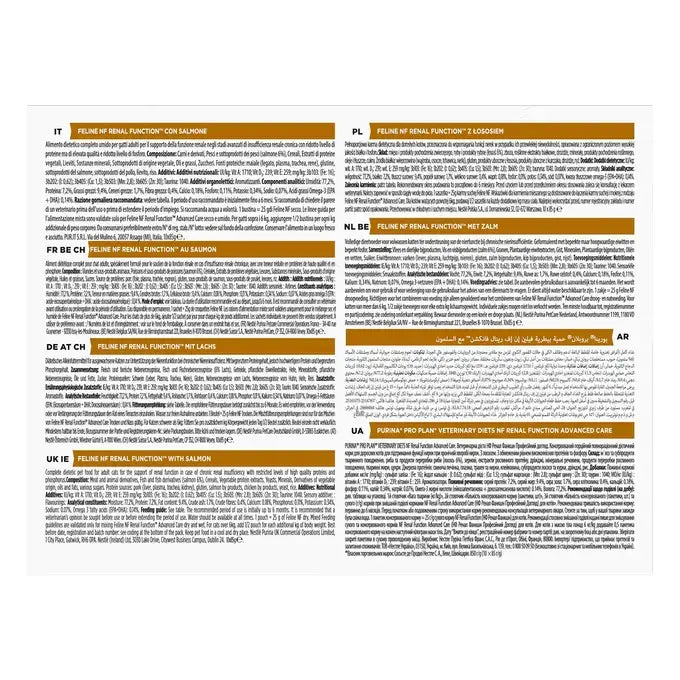
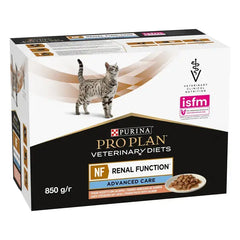
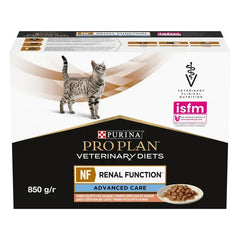
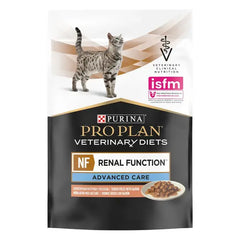
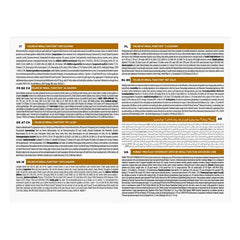
Description
x- Phosphorus restriction to help slow the progression of kidney damage.
- High quality proteins in moderate quantities.
- High palatability to satisfy cats with diminished appetites.
Features
- High quality protein in moderate amounts to support kidney function from the early stages and helps maintain adequate muscle mass.
- Early restriction of phosphorus to slow the progression of chronic kidney disease in the early stages (IRIS Stage 1 and 2).
- Added Omega-3 fatty acids, potassium and antioxidants to help preserve the kidney.
- Specially formulated to meet the needs of cats with early-stage chronic kidney disease.
Complete and palatable dietary food, intended for cats suffering from early stage chronic kidney disease.
As the kidneys become damaged, they lose their ability to excrete certain toxins produced by the body and the accumulation of these can lead to various disorders including loss of appetite. Your cat also loses the ability to concentrate its urine; he eliminates increasingly large volumes of urine, at the same time as he drinks more to compensate. Weight loss is also common. The earlier the disease is diagnosed, the more effective the treatment will be.
Diet is at least as important as medication in controlling the disease, slowing its progression and helping to improve your cat's quality of life.
Reducing dietary phosphorus intake is essential to slow the progression of Chronic Kidney Disease (CKD). Optimizing the level and type of protein can also help improve the quality of life of cats suffering from kidney disease; These precautions help minimize clinical signs while providing energy and helping to maintain healthy muscles, organs, and immune function.
However, a food designed for cats with kidney disease will be of no use if your cat refuses to eat it. The formula is very palatable to satisfy cats whose appetite is diminished.
Contains limited amounts of phosphorus, as studies have shown that this mineral contributes to the progression of the disease.
Formulated with moderate amounts of high quality proteins, to help reduce the formation of uremic toxins, which have been shown to have beneficial effects on patients with kidney failure, while minimizing the loss of muscle mass.
Contains omega 3 fatty acids which help reduce inflammation and improve renal hemodynamics.
Ingredients
Pork (kidney, liver, meat, dehydrated proteins)
Chicken 8%
Dried egg
Fish oil
Sunflower oil
Dried yeast
Salmon
Rice
Cellulose
Minerals
Sugars
Nutrition and analytical constituents
Protein: 8.5%
Fat content: 6.6%
Raw ashes: 1.7%
Crude fiber: 0.5%
Calcium: 0.17%
Phosphorus: 0.11%
Sodium: 0.07%
Potassium: 0.34%
Omega 3* fatty acids: 0.22%
*EPA (eicosapentaenoic acid) and DHA (docosahexaenoic acid): 0.11%
Metabolizable energy (ME)*: 0.99 kcal/g
*These values reflect the average nutrient levels in the product approximately 9 months after production.
Nutritional additives
IU/kg:
Vit A: 29,450;
Vit D: 422;
Vit E: 272.
mg/kg:
Taurine: 1,230;
Iron (II) sulfate monohydrate (Fe): 40.0;
Copper (II) sulfate pentahydrate (Cu): 4.0;
Manganous sulfate monohydrate (Mn): 4.0;
Zinc sulfate monohydrate (Zn): 4.0;
Sodium selenite (Se): 0.2.
Power guide
All indications for PURINA® PRO PLAN® VETERINARY DIETS mentioned are for the nutritional management of cats according to the disorders listed and do not preclude the medicinal management of the case. Before use or before extending the duration of use, it is recommended to seek the advice of a veterinarian.
How much does your cat weigh?
Maintenance in adult cats.
| Live weight (kg) | Daily quantities | |||
| Kibbles (g/day) | Sachets (number/day) | Mixed diet | ||
| Kibbles (g/day) | Sachets/day | |||
| 2 | 30 | 1 + 1/3 | 20 | 1/3 |
| 3 | 45 | 2 | 30 | 1/2 |
| 4 | 60 | 2 + 3/4 | 35 | 1 |
| 5 | 75 | 3 + 1/3 | 50 | 1 |
| > 5 | +15g/kg | +2/3 sachet/kg | +15g/kg | +1 sachet/kg |
For each additional kg of weight, give 2/3 more sachet per day if the cat is only fed wet food. A gradual change of food is especially important for cats with CKD. Cats who do not regain their appetite should be examined again by a veterinarian to ensure that no other complications have developed. Warming the food to room temperature may improve palatability. Since cats with CKD can easily become dehydrated, it is important to provide them with plenty of fresh water at all times. Using a canned food or fresh sachet instead of a dry food can also help increase water intake. Cats with CKD should be fed the Feline NF ST/OX RENAL FUNCTION range for their entire life. Use this food only if your veterinarian advises it.
- Choosing a selection results in a full page refresh.

